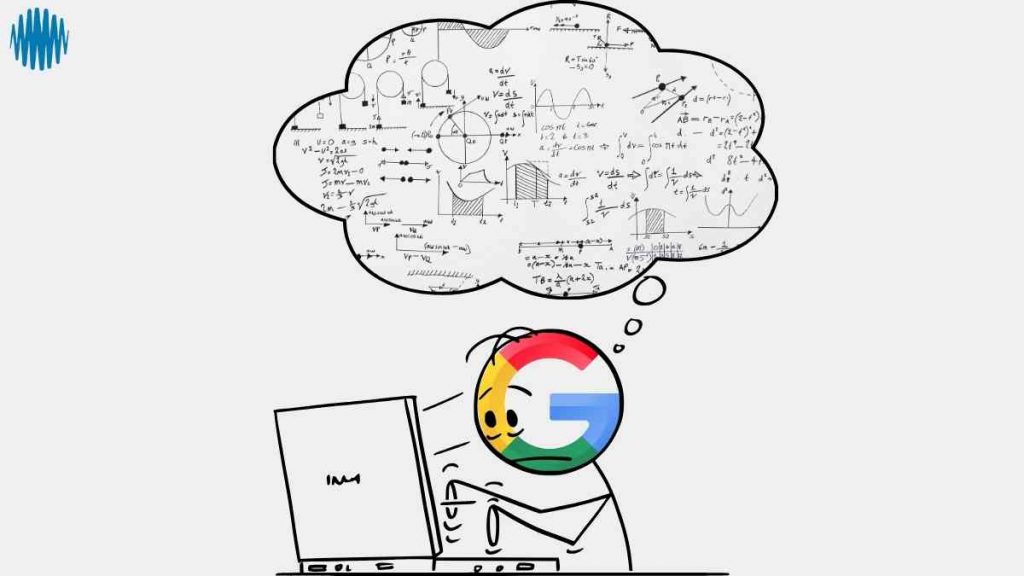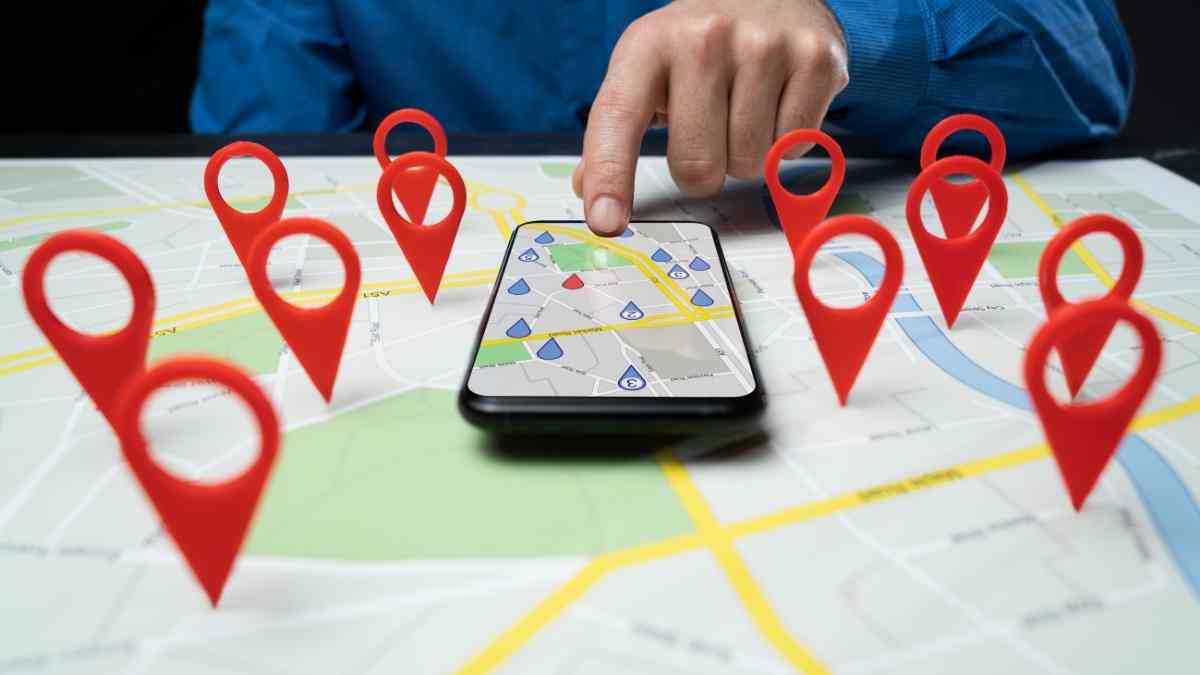Imagine this. Potential customers in Manchester search for “emergency plumber near me” at 9 pm on a Sunday. Their boiler’s broken, water’s everywhere, and they need help now. What do they do?
They look at the first three results. And if your business isn’t in there, you’ve just lost a £200+ job to a competitor. These customers will call the first plumber they see, not scroll through pages looking for you.
This happens thousands of times a day across the UK. Almost everyone searches online before visiting or calling a local business, and many make a purchase within hours.
These aren’t people browsing for fun. They’re customers with money in hand, ready to buy from whoever appears first.
Local SEO is how you make sure those people find you.
In this guide, we’ll look at why local SEO is essential in 2025, what’s changing in local search, and the first practical steps to get your business showing up where it matters most.
What Is Local SEO?
Local SEO is the process of optimising your online presence to attract customers from your local area. When someone searches for “coffee shop near me” or “accountant in Bristol,” Google uses specific signals to decide which businesses to show and in what order.
Local SEO works differently from regular SEO because it focuses on proximity and local relevance rather than just general authority and content quality. This creates opportunities for small businesses to compete effectively against larger companies that might dominate in national searches.
How Google Decides Which Local Businesses to Show
When someone searches for a local business, Google uses three main factors to decide who appears at the top. And these factors often work in your favour as a local business.
- Relevance – This is about how well your business matches what the person is searching for. If someone types “vegan bakery in Brighton” and that’s exactly what you are, you’re already in the running. Google looks at your business category, description, services, and even your website content to figure this out.
- Distance – How close are you to the person searching, or to the place they’ve typed in? If a customer is standing a few streets away from your shop, you’ve got an advantage over a big brand across town. That’s why being clear about your location and service areas matters so much.
- Prominence – This is Google’s way of measuring how well-known and trusted you are. It takes into account reviews, links from other sites, mentions in local news, and how active you are on your Google Business Profile. Small businesses often shine here – you’re part of the community, you offer personal service, and that naturally leads to positive reviews and word-of-mouth.
When you work on all three, you’re giving Google every reason to put your business in front of local customers who are ready to buy.

Why Local SEO Is Important for Small Businesses
Local search has become the primary way consumers discover and engage with nearby businesses, giving small businesses a real chance to compete with larger brands in their own area.
Local search is used by everyone
According to Google, 46% of all searches have local intent. With over 8.5 billion searches happening daily worldwide, that means billions of searches are made to find businesses close to the searcher. It’s not an occasional behaviour either – 99% of people have searched for a local business online in the past year. Local search has become part of everyday life, which is why showing up in those results is so important for any business that wants to be found.
Fast action and high conversion rates
When someone searches for a business nearby, they’re often ready to act. Research shows that 85% of people who searched for a local business visited within a week, and 17% visited the very next day. 78% of mobile local searches result in an offline purchase within 24 hours, and 28% of “near me” searches lead directly to a sale.
This happens because local searches typically happen at the decision stage, when customers already know what they want and are looking for the best place to get it.
This level of purchase intent is far higher than most other marketing channels. Local search can achieve conversion rates of 50% or more. For small businesses, that means fewer wasted clicks and more customers who are genuinely ready to buy.
Google Map Pack advantage
One of the clearest signs of Local SEO’s impact is the Google “Map Pack” – the three highlighted businesses that appear with a map for many local searches. This small section of the results attracts a huge share of attention. Studies show that 42% of local searches lead to clicks on the Map Pack, and 88% of people use Google Maps to find nearby businesses.
Ranking in these top spots can transform visibility. Businesses in the Google 3-Pack see up to 126% more traffic and 93% more customer actions, such as calls or website visits, compared to those ranked 4–10. Even compared to other visible competitors, being in the Map Pack can deliver a 40% higher click-through rate, making it one of the most visible and influential positions in local search results.
Builds trust and drives sales
One reason Local SEO works so well is that it builds credibility before customers even contact you. Positive reviews, high star ratings, consistent business information, and active profiles all send signals that your business is trustworthy.
Google’s own data shows that businesses with a complete Google Business Profile are 50% more likely to be considered by potential customers. Combine that with genuine customer reviews and recent updates, and you’re giving people more reasons to choose you over a competitor. This trust translates into revenue. Businesses see an average ROI of 2.5 times their investment in local SEO, with 40% of local SEO campaigns delivering an ROI of 500% or more.
The Competitive Gap
Despite the growth in local search, many businesses still overlook it. Only 64% of small businesses have any local SEO presence, and 58% don’t actively prioritise it. This creates a window of opportunity for those who act now.
At the same time, the trend for local search is accelerating, as “near me” searches have grown by over 900% in the last two years. The sooner you invest in local SEO, the sooner you can claim that visibility before your competitors do.
What’s Changing in Local SEO in 2025
Local search keeps evolving, and businesses that adapt early can get ahead of their competitors. Here are three big changes shaping local SEO this year:
AI summaries in search results
Google now shows AI-generated overviews for some local searches. These summaries pull details from different sources to give quick answers. According to Semrush, 13% of all searches included AI Overviews by March 2025, up from 6.5% in January. For local searches specifically, Whitespark found they appear about 15% of the time. Making sure your business details are accurate and consistent across all platforms gives you a better chance of being included.
Voice search growth
With Siri, Alexa, and Google Assistant getting smarter, more people are using voice to find what they need. Conversational questions like “Where’s the best fish and chips near me that’s open now?” are becoming common. DemandSage reports that 20.5% of people worldwide now use voice search. It’s especially important for local businesses. Invoca says 76% of smart speaker users make local voice searches at least weekly, and 46% do so daily.
Smarter Google Business Profiles
Google Business Profile is becoming even more useful, with new features like sustainability badges, improved verification, AI-powered insights, and better messaging tools. These updates make it easier to attract and engage customers, and the more complete and active your profile is, the more likely it is to stand out in AI Overviews and local packs.

First Steps in Local SEO for Small Businesses
Before you dive into advanced strategies, get the essentials in place. These three steps form the foundation for your local SEO success.
Step 1: Google Business Profile basics
Your Google Business Profile is your free shop window on Google Maps and in local search results. If you haven’t claimed it yet, go to Google Business Profile Manager and start the verification process.
Fill in every section with your exact business name, primary category, full address, phone number, website, opening hours, and a clear description. Add high-quality photos of your products, services, team, and location. A complete profile makes you more likely to appear when customers search for what you offer.
Post regular updates about offers, events, or business news. Keep them fresh to stay visible.
Step 2: Target “near me” searches
When someone searches “florist near me open now,” they’re ready to buy.
Help Google and customers understand where you operate by naming specific towns, neighbourhoods, postcodes, or local landmarks in your content and profile. Instead of “We serve London,” be specific: “We provide emergency plumbing services across South London, including Clapham, Brixton, Balham, and surrounding areas.” This makes it easier for you to appear when people nearby search for your services.
Step 3: Keep your NAP information consistent
NAP stands for Name, Address, and Phone number. These must be exactly the same everywhere they appear online – on your website, Google Business Profile, social media, and in directory listings. Even small differences like “St” vs “Street” can cause search engines to treat them as different businesses, which can hurt your visibility.
Create one master record of your business details and use it every time you create or update a profile.
Final Thoughts
Local SEO for small businesses is about making it easy for nearby customers to find and trust you when they’re ready to buy. Start with the basics – Google Business Profile optimisation and consistent contact details. Keep your profile fresh with updates and respond to reviews to show customers you value their feedback.
Small, consistent actions can quickly add up to stronger local rankings and more people choosing your business over a competitor.
Want help putting these strategies into action or need a professional local SEO audit? Social Matrix specialises in helping small businesses dominate their local markets and get found by the customers who matter most. Contact us today, and let’s put your business on the map.

